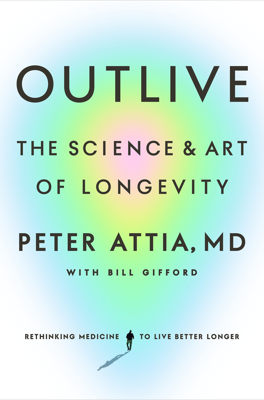Thinking Tactically: Building a Framework of Principles That Work for You
Peter Attia draws on Bruce Lee's philosophy of absorbing what is useful, discarding what is useless, and personalizing approaches, to illustrate how modern life, while beneficial in many ways, also fosters conditions that potentially shorten longevity due to a mismatch between our fast-evolving environments and relatively unchanged genetics. This mismatch is exemplified by modern dietary issues such as the excessive consumption of fructose, which historically had definitive survival benefits but now contributes to widespread metabolic disorders due to its overabundance.
Tactical Domains in Medicine 3.0
The chapter shifts to tactical approaches in Medicine 3.0 which encompass five key domains: 1. Exercise: Emphasized as the most impactful on both lifespan and healthspan, exercise is broken down into aerobic efficiency, maximum aerobic output (VO2 max), strength, and stability. 2. Nutritional Biochemistry: Focuses on diet and nutrition adjustments. 3. Sleep: Recently getting more attention for its critical role in overall health. 4. Emotional Health: Management techniques for improving mental wellness. 5. Exogenous Molecules: Involves the use of drugs, supplements, and hormones, though the chapter primarily focuses on the first four non-pharmaceutical domains.
Importance of Individualized Tactical Game Plans
Peter Attia argues against uni-dimensional approaches, presenting a case for developing tailored tactical plans that adapt over time based on individual needs and scientific insights. He acknowledges that while the broad strategies may seem self-evident (like exercise and nutrition), the most effective tactics lie in the unique, personal details and implementation.
Interplay of Nutritional and Exercise Tactics
In his clinical practice, Attia evaluates patients on their nutritional status (overnourished vs. undernourished), muscle mass (undermuscled vs. adequately muscled), and metabolic health. He highlights the frequent overlap between those who are overnourished and those with poor metabolic health. The intricacies of ensuring adequate protein intake while reducing overall calories are discussed as an example of the need for coordinated tactical intervention.
Continuous Adaptation and Personalization
In conclusion, Attia emphasizes the importance of ongoing personal and scientific evolution in tackling health. The approach is not married to any one ideology but is fluid, incorporating new insights and adapting tactics to meet personal health needs effectively. The overarching aim is to improve life's quality and duration by finely tuning and personalizing strategic health plans.
